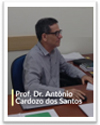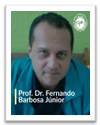Toxicology covers all the aspects related to the investigation into the adverse effects of chemicals and can be considered a basic and applied science. For this reason, the Postgraduate Program in Toxicology includes three major areas: Experimental Toxicology, Clinical Toxicology, and Toxicological Analysis. Research lines in these three major areas allow incorporation of the different specialties that make up the many faces of Toxicology, as well as rising innovations in the area.
(*) Guest researchers
- Education
- Undergraduate
- Graduate
- Graduate Commission
- Graduate Service
- Biosciences and Biotechnology Program
- Pharmaceutical Sciences Program
- Toxicology Program
- History and Objectives
- Faculty and Research Lines
- Student Body and Research Projects
- Selection Process and Enrollment
- Theses and Dissertations
- Post-Doc (PNPD)
- Publications Print USP/CAPES
- Special Notice: Mozambique Agreement
- Subjects
- Program Regulations
- Forms
- Grant of Scholarships
- Awards
- Infrastructure
- Defenses
- Diplomas
- Teaching Improvement Program (PAE)
- History of Graduate Studies
- Regulations and Rules
- International Collaborators






















